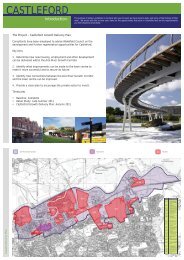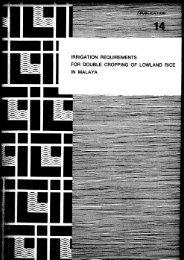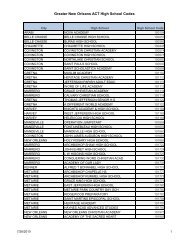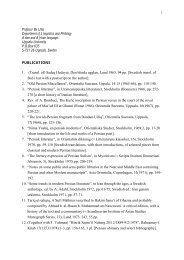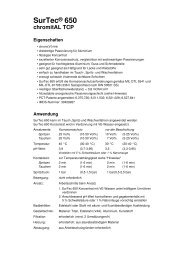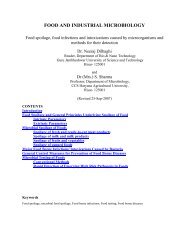On the Future of Indigenous Traditions - Munin
On the Future of Indigenous Traditions - Munin
On the Future of Indigenous Traditions - Munin
Create successful ePaper yourself
Turn your PDF publications into a flip-book with our unique Google optimized e-Paper software.
Raj Act (meant for all India). The Jharkhand Panchayti Raj Act 2001 on one hand<br />
gives “more power” to <strong>the</strong> village councils and enables <strong>the</strong>m to have “direct links to<br />
<strong>the</strong> centre”, but does not support <strong>the</strong> customary system <strong>of</strong> governance for <strong>the</strong> Adivasis<br />
in <strong>the</strong> Scheduled Areas <strong>of</strong> <strong>the</strong> state.<br />
The question here is <strong>the</strong>n what is <strong>the</strong> problem for <strong>the</strong> Adivasis lie? Moreover, why<br />
should <strong>the</strong> Adivasis have problems with it, when <strong>the</strong> <strong>the</strong>n Chief Minister (CM) 98 <strong>of</strong><br />
<strong>the</strong> state, was an Adivasi himself claiming to be supporting <strong>the</strong> interest <strong>of</strong> <strong>the</strong> Adivasi<br />
peoples? As a result <strong>of</strong> this development <strong>the</strong>re are three cases (Devendra Nath<br />
Champia vs. State <strong>of</strong> Jharkhand WP (PIL) 5939 <strong>of</strong> 2001; Sa<strong>the</strong>e vs. State <strong>of</strong><br />
Jharkhand, WP 5669 <strong>of</strong> 2001; Adivasi Aatu Boisi Self Governance Committee vs.<br />
State <strong>of</strong> Jharkhand, WP 2993 <strong>of</strong> 2002) 99 in <strong>the</strong> Jharkhand High Court concerning <strong>the</strong><br />
effects <strong>of</strong> Jharkhand Panchayti Raj Act 2001’s proposed elections on <strong>the</strong> traditional<br />
political structure <strong>of</strong> <strong>the</strong> Adivasis and ano<strong>the</strong>r ten cases raising <strong>the</strong> issue <strong>of</strong> reservation<br />
and boundaries <strong>of</strong> Scheduled Areas. 100<br />
According to <strong>the</strong> analysis given on this issue by Nandini Sundar, <strong>the</strong>re are four<br />
different sets <strong>of</strong> interest groups in Jharkhand. The first set <strong>of</strong> groups is <strong>of</strong> <strong>the</strong> Adivasis<br />
<strong>the</strong>mselves, i.e. <strong>the</strong> Jharkhand Pradesh Parha Raja, Manjhi Parganait Manki Munda,<br />
Doklo Sohor Maha Samiti, who oppose having <strong>the</strong> Jharkhand Panchayati Raj<br />
elections in scheduled areas. They argue for <strong>the</strong>ir own customary system and <strong>the</strong>ir<br />
heads munda-mankis, manjhi-parganaits to be <strong>the</strong>ir representatives instead <strong>of</strong> <strong>the</strong><br />
Panchayt’s three-tier elected system. PESA enables to form government which are<br />
built upon local traditions <strong>of</strong> participatory democracy, instead <strong>of</strong> <strong>the</strong> divisive party<br />
politics and money that are associated with representative democracy in India.<br />
The second set <strong>of</strong> groups comprise mainly Kurmi Mahto 101 and o<strong>the</strong>r non-Adivasi<br />
groups, like <strong>the</strong> Chatra Yuva Sangharsh Samiti and <strong>the</strong> Jharkhand Pradesh<br />
Panchayatiraj Adhikar Manch (JPPAM), who do not see a special future for Adivasis<br />
98<br />
Babulal Marandi, <strong>the</strong> <strong>the</strong>n Chief Minister <strong>of</strong> Jharkhand state. He comes from <strong>the</strong> Santhal Adivasis<br />
99<br />
Nandini Sundar, “Custom' and 'Democracy' in Jharkhand”, Economic and Political Weekly (8<br />
October, 2005), 4432.<br />
100<br />
Ibid.<br />
101<br />
In <strong>the</strong> earlier and pre-independent India <strong>the</strong>se groups from Hindu background who had come to live<br />
with <strong>the</strong> Adivasis as <strong>the</strong>ir guests and service communities were listed as Scheduled Tribes, but later in<br />
<strong>the</strong> post-independent India <strong>the</strong>y were given ano<strong>the</strong>r status, – <strong>the</strong> O<strong>the</strong>r Backward Class (OBC).<br />
68



